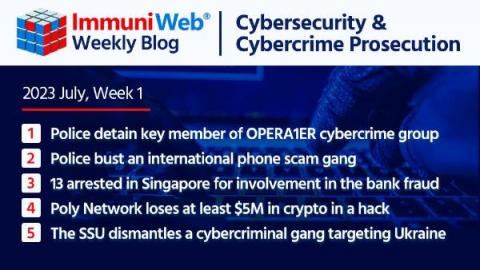Security | Threat Detection | Cyberattacks | DevSecOps | Compliance
Fraud
Launch Of New Meta Thread App Spawns Hundreds Of Spoof Domains
Researchers at Veriti have observed hundreds of spoofed domains following Meta’s launch of its Threads social media platform. “In recent weeks, we have observed a surge in the creation of suspicious domains, with over 700 domains related to Threads being registered daily,” the researchers write.
Job Recruitment Scams Rising Due to Social Engineering
Job scams are a rising form of socially engineered cybercrime. And while it’s easy to imagine the trouble they cause individuals who innocently fall for them (lost opportunities, identity theft, financial loss, and so on) this form of fraud also affects businesses.
Amazon Prime Day Alert: Beware of Fake Logins, Gift Card Scams
A new threat alert from ConsumerAffairs and TrendMicro proves more than just shoppers will take advantage of Amazon’s upcoming Prime Day. As Prime Day approaches on July 11-12, ConsumerAffairs reports on a variety of scams bad actors are expected to use to take advantage of online shoppers looking for a good deal: Trend Micro's research team identified.
Interpol Nabs Suspected Key Member Of OPERA1ER Cybercrime Group
Read also: Poly Network hacked for the second time in two years, a massive phone scam disrupted and more.
What Is a Bait-And-Switch Scam?
A bait-and-switch scam is a practice in which a vendor lures in a buyer with a tempting offer for a great product that the vendor does not intend to sell. This usually means advertising a too-good-to-be-true deal which, when the buyer is “baited,” is then “switched” out for a different offer.
ATM Transaction Reversal Fraud: Strategies to Safeguard Your Finances
Picture a quaint, small town enveloped in the tranquility of a peaceful night. The only signs of life are flickering street lamps and the glow from the neighborhood automated teller machine (ATM). You spot someone approach the ATM, withdraw cash and walk away. It all looks so normal. What you don’t realize is that you have just witnessed a fraud attack, specifically, transaction reversal fraud (TRF).
Over 6,500 Arrested, Euro900M Seized In Three Years After 2020 EncroChat Hack
Read also: Twitter hacker sentenced to prison, police rescued over 2,700 people forced to carry out scams, and more.









